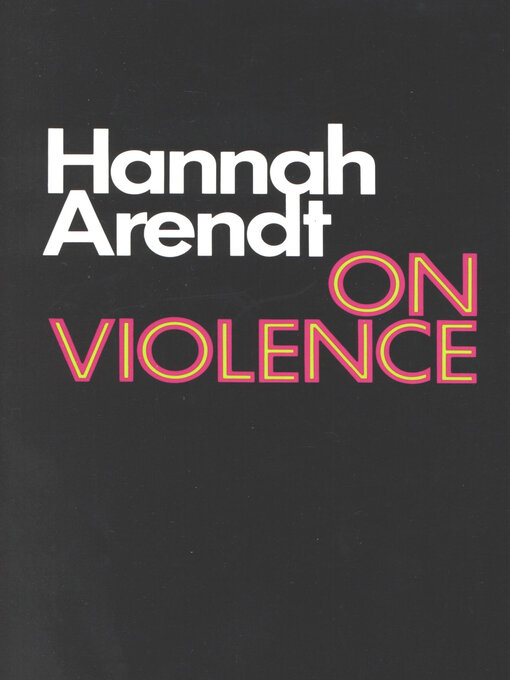The political theorist and author of The Origins of Totalitarianism offers an “incisive, deeply probing” essay on violence and political power (The Nation).
Addressing the escalation of global warfare witnessed throughout the 1960s, Hannah Arendt points out that the glorification of violence is not restricted to a small minority of militants and extremists. The public revulsion for violence that followed World War II has dissipated, as have the nonviolent philosophies of the early civil rights movement.
Contemplating how this reversal came about and where it might lead, Arendt examines the relationship between war and politics, violence and power. She questions the nature of violent behavior and identifies the causes of its many manifestations. Ultimately, she argues against Mao Tse-tung’s dictum that “power grow out of the barrel of a gun,” proposing instead that “power and violence are opposite; where the one rules absolutely, the other is absent.”
“Written with clarity and grace, it provides an ideal framework for understanding the turbulence of our times.”—The Nation

